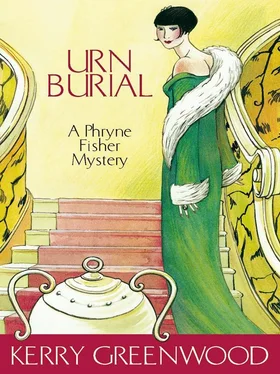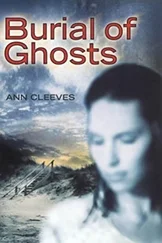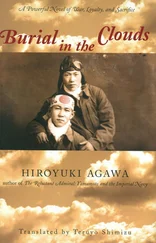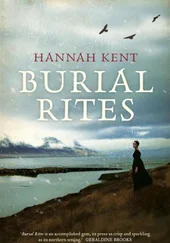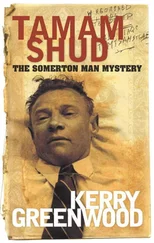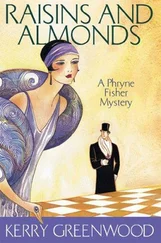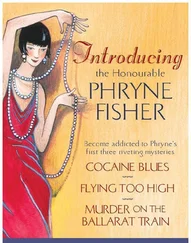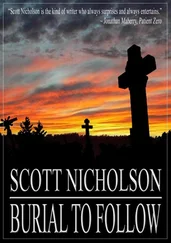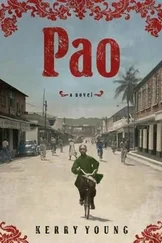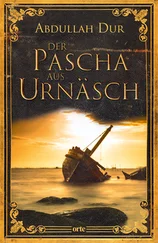‘Can’t throw him out for a joke, even a mistimed joke,’ said Tom uncomfortably. ‘I’ve docked his wages and he won’t come near you or Lin again, Phryne darling. There’s no work in the countryside – I can’t throw him out to starve or steal.’
‘Can’t you?’ asked Phryne, and Dingo Harry chuckled.
‘Always been soft, Tom,’ he said.
‘Now,’ Dingo Harry told the assembled house party as the dray started with a jerk and they plodded along the road, ‘these are the Buchan Caves. They weren’t named after a place in Scotland, but after the Aboriginal word for dillybag, bukken . Because that’s what they’re like; a dilly-bag of limestone in the porphyry of the hills. Of course, there’s an argument about the name. It might also be bokkan , which means plenty, or a form of bakang , which means dark. Anyway, they are made like this. Rain falls on a limestone shelf. There is nothing stronger than water.’
‘Impeccable Taoism,’ said Lin Chung.
Dingo Harry looked at him and nodded, continuing. ‘Then the limestone weathers, see, because the rain picks up carbon dioxide from the air and forms a weak acid – carbonic acid. Limestone splits and dissolves and there are pits and holes and arches cut through it, until we have your basic cave. Then water drips through the roof. Each drop contains a minute amount of calcium carbonate, dissolved limestone, and it leaves a little ring of carbonate of lime on the stone. Everywhere the percolating waters form stalagmites and stalactites and dissolve the rock along fracture lines. After a while – twenty years, maybe – a stalactite begins to form. Water drips down that and the same thing happens when it hits the floor; a stalagmite, growing up. When they join in the middle they become a column. Sometimes, where the water lies in little hollows, the mineral calcite is precipitated, and that’s a hexagonal crystal, making pyramids, or spread all over in little points of light. The basic colour of limestone is white. When there’s an admixture of iron or other oxides, it’s coloured. Now, we’re going down. Have you all got torches?’
The party exhibited a variety of tow-wrapped torches and candles.
‘Good. Don’t stray away. It’s black dark under the earth, darker than you’ve ever seen. Sound moves oddly in caves and it’s very hard to find anyone who gets lost. Also, there are pits and shafts so deep they’ve never been plumbed, and they’re full of icy water. We’re going to Slocumbe’s Cave. It was named after the man who found it. He was a grazier, a friend of Moon who was a prospector. Only a fifth of these caves have been excavated, and we’re going to this one because it’s nearest and deepest. We can’t get to King’s Cave, it’s on the other side of the Snowy.’ He flung out a hand. It was clearly impossible to get across the river. Between romantic chasms lined with trees taller than cathedrals, the river snarled and foamed, grey-blue water roaring through the abyss.
‘Where Alph, the sacred river ran, Through caverns measureless to man, Down to a sunless sea’ , murmured Miss Mead, enthralled. Dingo Harry awarded her an approving look.
‘That’s where I found the bay mare,’ observed Miss Fletcher, as the dray rocked and swayed on to a grassy siding next to the gravel road. A low opening with a barred gate in the side of a hill was visible. A small sign told them that this was SLOCUMBE’S CAVE NO TRESPASSING NO SHOOTING VISITORS PLEASE MIND YOUR HEADS.
‘I hope Will Luttrell hasn’t gone into the caves,’ said Tom.
Dingo Harry remarked, ‘If he has, only chance will find him.’
By this statement, Phryne learned that Mr Dingo was an atheist, as all the best red-raggers were, reserving their spiritual devotion for Marx and Engels. Paul Black drew the patient horse to a halt and let down the backboard, still grinning in a way which made Phryne itch to belt him with a picnic basket. Why on earth had Tom allowed this excrescence on the fair face of Australian labour to continue in his employ after his murderous assault on Phryne and Lin Chung?
She evaded Mr Black’s greasy hand and leapt down from the dray without help. Dot followed, handing down Phryne’s bag; a large leather pouch with a highly unfashionable shoulder strap. Miss Fisher had been trapped in the dark once and did not mean to encounter any confined spaces without adequate preparation.
Mr Black secured a nosebag to Dobbin’s resigned countenance, put up the backboard, and sat down on the dray. He took out a clasp knife and a block of soft wood, and began to strip precise curls of bark off it, whistling ‘Oh Susannah’ through the remains of his teeth. Phryne turned her back on his slimy grin.
‘Mind your heads,’ said Dingo Harry as the party filed in through a passage some three feet wide and five feet high. Phryne, in the lead, had only to crouch a little, but the taller members of the group were bent almost double as they crept along the close-smelling tunnel and down an iron ladder bolted into the stone. Lin Chung, beside her, drew in a slow calming breath. Phryne remembered his fear of enclosed spaces.
‘Wouldn’t you rather wait outside?’ she asked lightly. ‘Nothing much to see down here and we won’t be long.’
Lin, on whom the clay walls were closing in so that he could hardly breathe, would not be rescued. He said curtly, ‘I’m sure that it will be most interesting,’ and continued on. His face in the glare was as pale as limestone. Phryne gave him points for courage and, in charity, stopped watching him.
She wondered what strange concatenation of circumstances had brought Mr Slocumbe down this unpromising way. She was just deciding that he must have fallen in when she reached the floor and stepped away from the ladder. She switched on her electric torch and other lights sprang behind her as the rest of them came into the cavern.
It was vast. She could feel the elevation before she saw it. The ceiling was high, airy, and strangely figured. This might have been where the makers of Cave House had got their Gothic inspirations. Miss Fletcher said, ‘I say!’ and the poet gasped, ‘ Me`re de Dieu !’
It was as large as Westminster Abbey and decorated in rose, grey, white and salmon pink. Lengthy columns like melted wax candles as thick as Phryne’s waist rose to unguessable heights. Across one corner was a sheet of pure white stone, almost as thin as cloth, which might have been expected to bear the Byzantine face of Christ. The moving lights across the floor combined in a sufficient glow to pick out formations like angels with spread wings, heraldic animals, and a wall of diamonds, shooting prismatic rays, which must be the mineral calcite.
It was like nothing that Phryne had ever seen; majestic and grotesque. The underground air struck chill, smelling of chalk and depths and cold water.
‘Oh, wondrous,’ murmured Lin Chung. ‘Oh, water, mistress of earth, valley spirit, eternal feminine!’
‘Taoism again?’ Phryne leaned close to hear what he was whispering.
‘From the Tao Te Ching . The old Master should have seen this. All made by water, the female, cold, moon principle.’
‘Yin,’ said Phryne. ‘This is the womb of the earth.’
‘Indeed.’ He took her hand. ‘Completely foreign to all male, hot, sun creatures.’
‘Like you?’
‘Like me. Yang can only admire and tremble.’
‘Come along.’ She led him into the centre of the huge space. ‘We don’t want to get lost in the earth-mother’s insides.’
They followed the trail of lights across the floor to another tunnel, barely wide enough to fit Phryne and her bag. Lin’s grasp on her hand tightened until it hurt. They came into a chamber of white stone, joined by a single slender column, and lined with basins of gems. A million facets threw back the different lights; cold electric-blue and white, warm-red, yellow and orange fire, dazzling the eyes. A trail had been trodden through gypsum roses, pink as any springtime, in the middle. Dingo Harry was in the lead, and Phryne could hear his voice, educated and rich, discussing the chemistry of limestone with Doctor Franklin as they walked through the rocky flowers up a gentle slope towards another dreamscape.
Читать дальше
